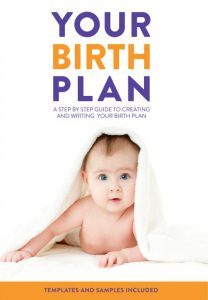
You can’t make informed decisions without information
As a doula, I believe so completely that a person’s birth experience can be transformative and will stay with them forever.
Whilst I would love to say that if you do all the research, ask all the questions and make all the ‘right’ decisions you will be guaranteed your perfect birth, that’s just not realistic.
What is realistic though, is that no matter the twists and turns that your birth may take, if you are well informed you can continue to play a major role in all of the decisions surrounding your birth experience.
And that may just be even more important than getting exactly the birth that you wanted.

Questions, questions
Except in the rare case of a full-blown emergency, you (or your partner) can always ask questions.
You can ask why a certain procedure is being suggested.
You have a right to know the risks and benefits that go along with it and what the alternatives might be.
You can absolutely say that you need some private time and space to discuss your options before coming to a decision.
Ideally, though, you would go into your birth knowing a lot of this already.
And that is where this page comes in.
I wanted to put together a few good, evidence-based resources that will cover the most common interventions that can crop up during a hospital birth.

I have included a mix of podcasts and articles and hope that they will give you a solid basis. If you then want to do further research, great.
If not, hopefully, these links will give you a strong foundation for thinking about what you do and don’t want for your birth as well as the confidence to be at the centre of your birth and any decisions that need to be made.
I would like to underline that this page is not intended to push you towards one type of birth or another. The intention is simply to point you in the direction of some sound information so that, whatever kind of birth you plan on, you know you have made an informed choice.

First things first – Why aim for a physiological, unmedicated birth?
Whether or not you choose a physiological birth is totally your decision and I will support whatever decision feels right for you. However, I do think it is important to have a good understanding of what physiological birth is and its benefits.
I cannot recommend this article enough – it will provide you with such a good grounding from which to dive into everything else.
Ecstatic Birth: The Hormonal Blueprint of Labor
By Sarah J. Buckley
If this article seems a bit much, try this instead.
Plus Mommy Podcast: What is Physiologic Birth and How to Experience It
An amazing, interesting, informative, wonderful episode with info that is relevant for all kinds of births. A great starting point for thinking about what you want for your own birth.

Interventions
Induction
Childbirth Connection – Labor Induction
Evidence Based Birth – Due Dates
Failure to Progress
Evidence Based Birth – Friedman’s Curve and Failure to Progress: A Leading Cause of Unplanned Cesareans
Artificial Rupture of Membranes
Cochrane – Amniotomy for Shortening Spontaneous Labour
Evidence Based Birth – Evidence on AROM, AVD & Internal Monitoring
Pitocin
5 Things Oxytocin Does That Pitocin Doesn’t
WHO Recommendations for Augmentation of Labour
Electronic Fetal Monitoring
Evidence-Based Electronic Fetal Monitoring
Pregnancy Podcast – Electronic Fetal Monitoring
Epidural
The Hidden Risk Of Epidurals
By Sarah J. Buckley
Cesarean & Family-Centred Cesarean
Childbirth Connection – Cesarean Section
Pregnancy Podcast – Cesarean Section
Birthful – Family-Centred Cesarean

Last But Most Certainly Not Least…
Your Birth Plan by Vanessa Merten, host of the Pregnancy Podcast. If you are only going to choose one resource, this is a great one.
Vanessa has put all the information you need in one place and has managed to make it extremely accessible whilst still covering everything with a good level of detail and examining all the angles.
Amoung other topics, this book includes –
– Why a birth plan is so important
– Planning for the unexpected
– Labour room environment
– All of the interventions covered here plus a few more
– Breastfeeding &
– Procedures after birth
Vanessa has used evidence-based research to give you a fantastic grounding in what each intervention entails, risks, benefits, questions to ask, links to the corresponding podcast episode and to many of the studies she cites too.
There are also step by step guides, templates and samples.
The kindle and PDF version of this book are available for around 10 USD and can be read in just a few hours.
I am in no way getting anything for recommending it here but I am currently re-reading it and just had to include it.
Not an intervention but still good to read!

Water as a comfort measure
Even if you are not planning to give birth in water, labouring in the shower or tub can be a wonderful way to take the edge off any discomfort and to relax.
The bathroom can also be a great space for you and your partner to get some privacy to help the oxytocin really flow.
Turn off the lights, close the door and create your own cozy birth cave.
The below articles and podcast episode will give you lots of evidence-based information about using water in labour (including the fact that it appears to be safe even if your membranes have released).